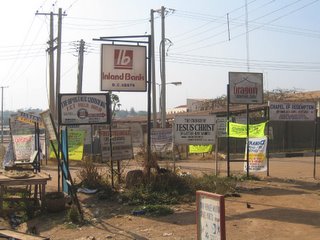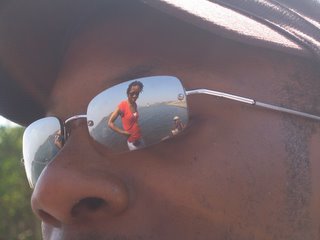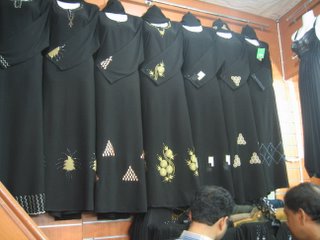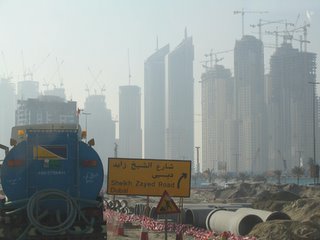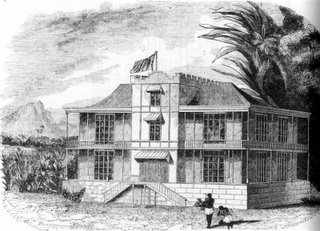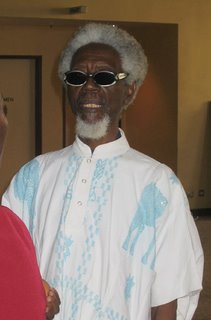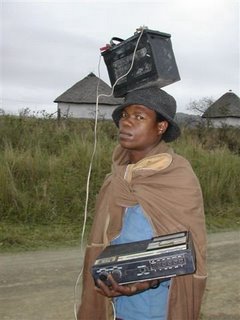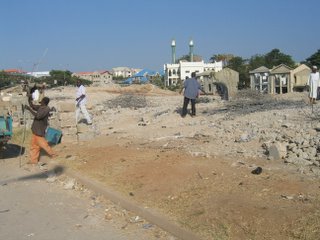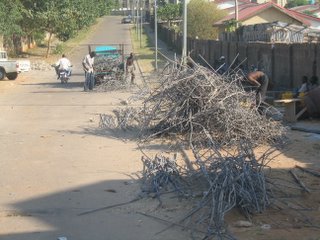We spent the weekend with Y, a guy I met through this blog. It was his first time back in Nigeria for some years and his first time in Abuja. His sensitive reflective ways and aesthetic attunement to the world made me consider what an aggressive brute I’ve become; Nigeria turns you this way simply in order to get through the days without being too scarred by the stupid inefficiencies and inefficient stupidities that confront one every day here. I felt like a reptile sick of my scaly skin. My life as an iguanadon. Time to go on retreat, meditate, love the smell of jasmine and wood smoke and all the things between once again.
We had fun talking into the night about Nigeria, the evangelical virus, the philosophical underpinnings of veganism and what it is to be human etc. It was a breath of balmy fresh air to have another intellect ventilating its energies through the house. A new friend perceptively commented recently that Nigeria always extracts energy, without giving anything in return. One has very little to learn from most of the people one meets, their heads being empty or full of superstitious vacuity (the young receiving no valid education these days). Y is interesting because he is an ex-evangelical; he therefore knows the Bible better than most and has thought his way outside of the brainwashed gobbledygook by questioning the very foundation of a literalist interpretation of the Bible: the Bible itself. He did this by studying the historical conditions in which the Bible itself was constructed (the various councils where what was Apocryphal and what not was decided). His analysis of the difference between the Gospels and the Pauline interpretation (the internalised “spirit within” of Matthew, Mark, Luke and John) and the externalised “Christ the Saviour” message that follows was particularly interesting. Of course, like myself or I imagine any other ex-Christian (I left the Christianity when I was 10), he has not completely renounced the faith; only the crass Manichean victory/money-obsessed perversion. The marginalised liberal interpretation (the Bible as a repository of useful/poetic narratives) awaits, to those who understand that faith is a journey to the urge within.
We also discovered Usman Dam, which is just 20 mins drive from Abuja. A glittering expanse of water complete with volcanic islands, anywhere else in the world this place would have been exploited for its huge tourist potential; sailing boats, speed boats, water and jet skiers would be zipping around, while more relaxed types would be sipping cocktails from a Niemeyer-esque balcony. Instead, there is silence and the sun shining down. Perhaps this is no bad thing; who wants a Costa del Abuja or a West African Windermere? But some modest development could surely take place here beyond the small, unused looking Julius Berger sailing club? We sat by the lakeside and enjoyed the glistening coolwarm water on our feet and the sound of stones plonking beneath the surface. Then we drove along the lane at the top of the dam, a kite keeping us company soaring the thermals above us, and clambered up rocks. Cigarette butts told us that this place was known by at least some. A skinny lad came walking after us down the track, descending the rocky slope to a tethered wooden canoe. He offered Y and I a trip; we clambered aboard and set out onto the crystalline water for a few minutes. Then we drove back, Y and I sitting on the bonnet, feeling like 10 years olds again. The landscape around the lake could have been Italy (minus the cypress trees). How soothing to be in a landscape, however briefly, after the low-grade concrete ugliness of Abuja.
We then drove to Bwari to the two pottery places in that area, buying some lovely glazed pieces. The spirit of master potter Ladi Kwali lives on in these places. On the road back, we filled the boot with grapefruit, oranges, paw-paw, melons, and bought some lovely local honey (Nigerian honey has a flavour all its own) from some jovial women at the crossroads near Ushafa. Finally, on the way back into town, we stopped off at the Crafts village place on Jabi road and Y bought some masks and battic hangings. I spotted a lovely four foot high Yoruba-style sculpture which Bibi’s sister helped to negotiate down to a decent price.
All of which proves the hugely underdeveloped tourist potential of Federal Capital Territory. Rather than blow all that money on a pointless carnival, the Tourist Ministry should look at places like Usman Dam and Guara Falls and create some eco-tourist projects. But then where are the kick-backs in modest adjustments like these?
On Sunday, I watched The Consequences of Love, the Italian contemporary masterpiece of cinema that came out earlier this year. I was reminded of the powerful message of the film: of love as a sacrifice without return, and of the essence of humanity lying in being able to recognise the humanity of others. If ever you get the chance, watch this film; its stylish, arresting and enigmatic all at once.
Read more...



